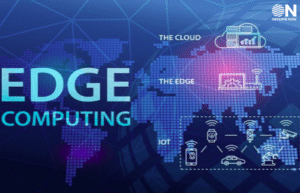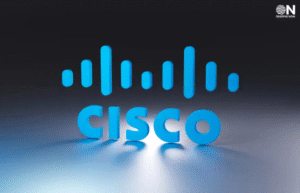World Technology Day – Ever-Evolving Landscape of AI vs Human,Trends, Debates & Future Outlook

The technology realm surrounds debating dialogue — artificial intelligence (AI) versus human capabilities, future of tech workspace, enablement that comes with technology etc. Though, with each passing breakthrough, the question looms larger – Can AI truly replace human work?
According to a report by Goldman Sachs, Artificial Intelligence (AI) has the potential to take over around 300 million full-time jobs. This could translate to replacing a quarter of work tasks in the United States and Europe, although it may also lead to the creation of new jobs and a surge in productivity. Additionally, AI could contribute to a 7% increase in the total annual value of global goods and services.
Researchers from the University of Pennsylvania and OpenAI have identified that certain educated white-collar workers earning up to $80,000 annually are particularly vulnerable to workforce automation.
AI’s Ascendancy – Impact & Consequences
Artificial intelligence has made staggering strides in recent years, outperforming humans in various domains. From mastering complex games like Go to aiding in medical diagnostics, AI has demonstrated remarkable proficiency. Machine learning algorithms, fueled by vast datasets and computational power, have enabled AI systems to analyze, learn, and adapt with unprecedented speed and accuracy.
AI vs Human: The Debate in Action
The debate over whether AI can replace human work is multifaceted and contentious. Proponents argue that AI can augment human capabilities, boosting productivity and efficiency across industries. They cite examples of automation streamlining processes, reducing errors, and freeing humans to focus on higher-order tasks requiring creativity and empathy.
On the other hand, skeptics raise concerns about job displacement and the erosion of human-centric skills. The caution against overreliance on AI, highlighting its limitations in nuanced decision-making, emotional intelligence, and ethical reasoning. Moreover, the specter of algorithmic bias and unintended consequences looms large, underscoring the need for responsible AI development and deployment.

Commenting on the balance between AI-driven automation and the preservation of human-centric skills in the workforce of the future Anil Kempanna, CEO, Cientra said” We envision a future where AI and humans work together, not against each other. Imagine a collaborative team where AI tackles routine tasks and data analysis, freeing up human minds for strategic thinking and creative problem-solving and we try deploying a host of strategies to ensure a smooth transition and build a future workforce where AI amplifies human capabilities, driving long-term success for businesses and society as a whole and a few of them can be Ethical AI Development, Upskilling the Workforce, Agile Leadership and lifelong learning.”
Numerous trends are shaping the interaction between AI and humans. Firstly, there’s a shift towards viewing AI as a tool to enhance human abilities rather than replace them, known as augmented intelligence. This collaborative approach is gaining traction across various fields such as healthcare and finance. Secondly, as automation alters traditional job roles, there’s a growing focus on reskilling and upskilling the workforce to adapt to these changes. Lifelong learning initiatives are crucial for ensuring individuals possess the necessary skills to succeed in an AI-driven economy. Thirdly, ethical considerations are increasingly central to AI development and deployment. This involves implementing frameworks to ensure fairness, transparency, and guard against algorithmic biases. Lastly, there’s a rising emphasis on designing AI systems with a human-centric approach. Factors such as user experience design, empathy-driven interfaces, and inclusive design principles play a pivotal role in fostering trust and acceptance of AI technologies.
Anil further stated that “we recognize the immense potential of AI and the ethical considerations that come with its rapid growth. As technology leaders, we have a responsibility to ensure responsible development and deployment and tackle some of the Challenging issues affecting society.
Here’s how we’re tackling this challenge:
Transparency & Explainability: We build AI systems with clear decision-making processes, allowing for human oversight and mitigating bias.
Human-Centered Focus: Our priority is human well-being. We develop AI that complements human capabilities, not replaces them. AI should augment our decisions, not remove our agency.
Robust Ethical Framework: We have strong ethical guidelines to address issues like fairness, accountability, and privacy. We actively participate in industry discussions to shape broader standards.
Diverse & Inclusive Teams: We foster diverse and inclusive teams, ensuring a wider range of perspectives are considered in development, leading to less biased AI systems.

Shedding some light on the importance of technology in the evolution of education Dinesh Kumar Poobalan, CEO & CTO, Greatify stated “ In the education space, technology has opened numerous avenues from bringing interactive learning platforms and virtual classrooms to adaptive assessment tools and AI-driven tutoring systems. By embracing innovation, educators can cater to diverse learning styles, foster creativity and cultivate a lifelong love for learning among students. It’s a great opportunity to reflect on the importance of continuing to improve education through technology.”
The future of AI and its impact on human work is inherently uncertain yet brimming with possibilities. While some jobs may indeed be automated, new avenues for human creativity, innovation, and meaningful work are likely to emerge. Collaboration between humans and AI, guided by ethical principles and a commitment to inclusivity, holds the key to unlocking the full potential of this transformative technology.
The relationship between AI and human intelligence is complex, nuanced, and evolving. Rather than viewing AI as a threat, embracing it as a catalyst for positive change can pave the way for a future where humans and machines collaborate synergistically to address global challenges and enrich the human experience.
Beta feature
Beta feature
















